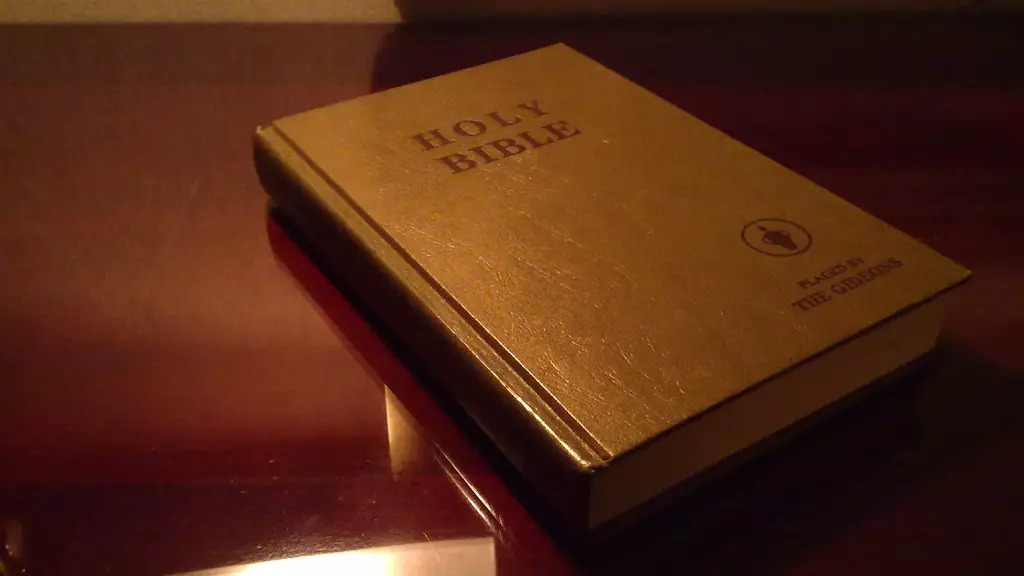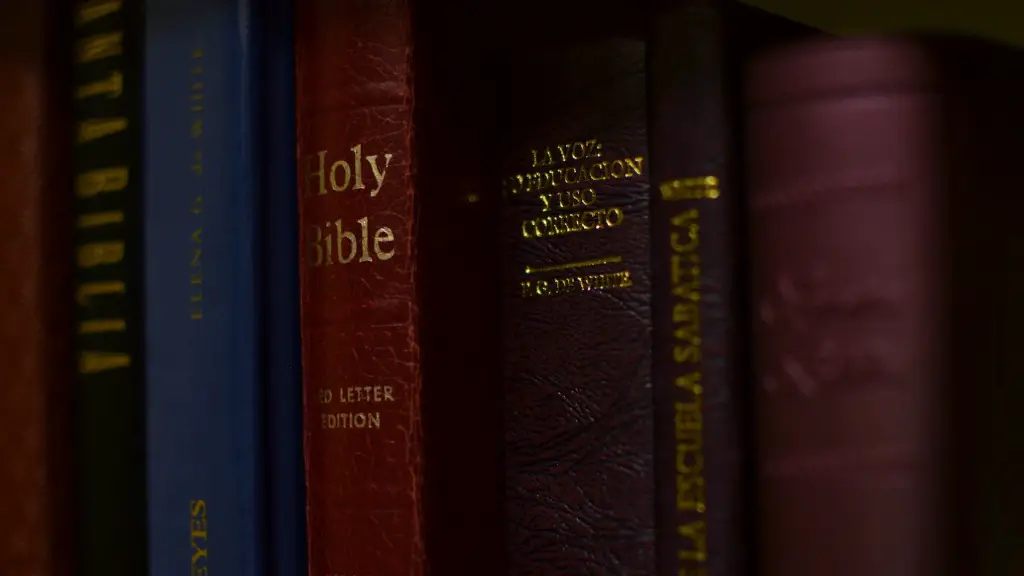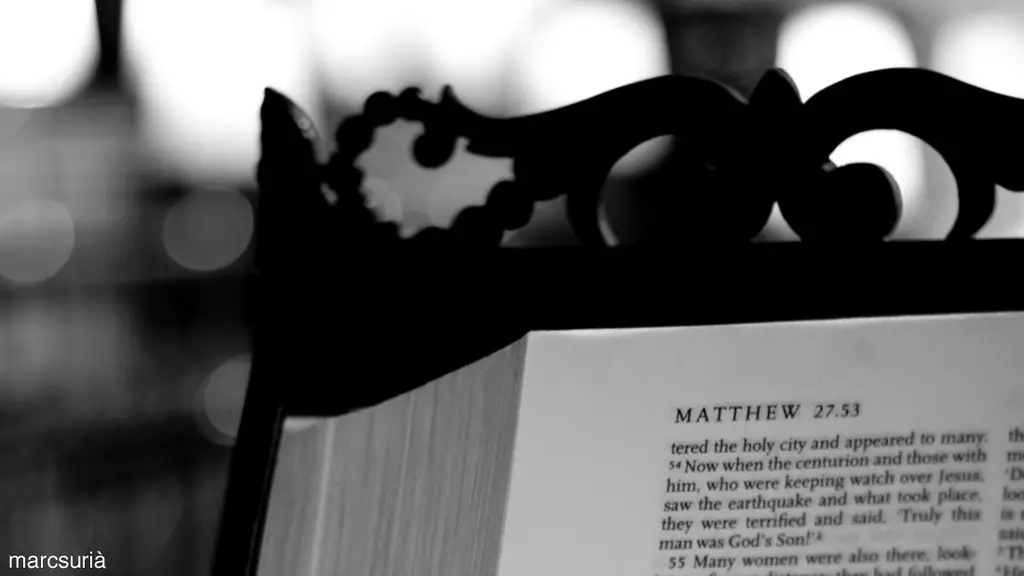Molech, also known as Moloch, is a term from the Hebrew Bible that has long been associated with the worship of a pagan deity. This figure is mentioned in the Old Testament book of Leviticus and is said to be associated with the worship of an idol. Although the exact meaning of the word is not clear, most scholars agree that Molech was an important and powerful deity in the ancient near-east, who was represented in some form of idol or figure. Molech was also considered to be a fertility god, who was connected to the sun, and was thought to bring blessings of fertility and abundance to those who worshipped him.
The ancient Israelites were renowned for their strict adherence to the laws of Yahweh and the worship of Molech was specifically banned in the Bible. In particular, it states that any person who “gives any of their offspring to Molech should surely be put to death”. This prohibition against the worship of Molech is further strengthened in the book of Jeremiah which warns of dire consequences if Molech is worshipped. The text suggests that the consequences could include physical, spiritual, and even spiritual destruction.
In addition to being viewed as a pagan deity, Molech was also associated with the practice of human sacrifice. According to some sources, the worship of Molech mandated the offering of a human sacrifice in some form. Historians believe that this practice was common among people of the ancient near-east and it may have been adopted by the Israelites at some point in time.
Today, the term “Molech” is used as a reference to any form of worship or obedience of false gods or idols. In modern times, it is often used as an allegory of the temptations and evils of the world. For example, in the Christian faith, Molech is seen as the expression of Satan’s power and dominion over the earth. This interpretation is commonly used to remind us of how easy it is to be swept away in the power of evil forces, and to remind us to avoid them at all costs.
Due to the controversial nature of Molech’s worship in the Bible, many scholars and theologians are hesitant to draw any conclusions about its significance. Some argue that it is merely a representation of the customs and superstitions of the time, while others point to the condemnations of Molech in the Bible as a testament to its danger and perniciousness. Regardless of its precise meaning, Molech has become a powerful figure throughout the centuries, one associated both with the darker side of faith as well as with warnings of the potential consequences of disobeying God.
Interpretations of Molech
One of the most important aspects of Molech is its interpretation. The meaning of the word has been debated for centuries, and modern scholars and theologians have developed a variety of different interpretations. While some argue that it is a figure of the devil or a personification of evil, others view Molech as a protective deity or a symbol of fertility. Regardless of the interpretation, it is undeniable that Molech has left a strong impression in our collective cultural consciousness.
Some interpretations focus on the notion of Molech as a guardian deity, who is meant to protect and provide for those who worship him. Others focus on its fertility association, claiming that Molech was a god of plentiful harvests, physical health, and improved fertility. While these interpretations are certainly interesting and valid, there is still much debate about the true meaning of Molech.
It is also worth noting that some contemporary scholars argue that the worship of Molech played an important role in the development of early monotheism. These theorists propose that Molech was originally worshiped as the supreme god, but was replaced with Yahweh as the Israelites began to embrace the concept of a single god. This idea aligns with the biblical narrative, in which the Israelites were warned against worshipping other gods, including Molech.
Consequences Of Worshipping Molech
Despite the ambiguity surrounding the meaning of Molech, the repercussions of worshipping him are very clear. In the Bible, the living God, Yahweh, is depicted as threatened by pagan practices and willing to punish the people for their rebellion. Worshipping Molech was seen as a grave sin, and those found guilty of such an offense were threatened with execution.
The most famous consequence for worshipping Molech can be found in the story of the prophet Elijah. In this legend, Elijah confronts King Ahab and Queen Jezebel, two of the Hebrews’ greatest enemies, who had embraced Molech’s worship. Elijah warned that God would severely punish them if they refused to turn away from Molech. True to his promise, God sent a fiery chariot to take the two monarchs away, a punishment designed to deter other Israelites from succumbing to the same temptation.
These biblical warnings and punishments serve as a powerful reminder of the evils associated with Molech’s worship. Even today, those who seek to obey God’s laws are encouraged to reject Molech and all other forms of idolatry, in order to remain loyal to God and His commandments.
Interpretations Of Molech Today
Despite the warnings against Molech in the Bible, the term is still used in modern times to refer to practices that are considered blasphemous by many. For instance, some people have argued that worshipping Molech is synonymous with sacrificing children, particularly those born to unmarried mothers in some cultures. Others view Molech as a figure of temptation, and use the term to refer to any practice that may lead to our sinful nature. While there is no one definitive interpretation of Molech, the term is still used to describe any activity that is seen as a modern representation of the ancient idolatrous practice of worshipping false gods.
While there is still much debate about the precise meaning and significance of Molech, it is clear that the figure has played an important role throughout history. From the warnings in the Bible to modern interpretations, Molech is a figure that is ingrained in both religious and cultural understanding.
Historical Context of Molech
The significance of Molech in Biblical history cannot be underestimated. Historical records suggest that the worship of Molech was widespread in the ancient near-east and was practiced by Canaanites, Ammonites, and other desert people. The worship of Molech is also mentioned in other, non-Biblical accounts, including the Babylonian Talmud and the Code of Hammurabi, where punishments for worshipping Molech are warned.
In addition, archaeologists have found evidence of Molech’s worship throughout the region, including clay sculptures and carvings of the figures. This evidence highlights the importance of Molech in ancient times and gives us a glimpse into the beliefs of a once thriving culture.
The practice of Molech worship was ultimately denounced by Yahweh, who is portrayed in the Bible as the one true God. Although Molech was once a powerful presence in the near east, his cult was ultimately abandoned as the Hebrews turned their attention to Yahweh and his commandments.
Modern Representations Of Molech
In modern times, Molech is still seen as an emblem of the power of false gods and idols. Popular culture has often drawn connections between Molech and themes of temptation, danger, and suffering. Movies like The Passion of the Christ, which depict the death of Jesus, often make reference to Molech as a representation of Satan’s influence. Similarly, books like The Chronicles of Narnia portray Molech as a leader of demonic forces.
Molech is also a frequent source of inspiration in music, as many popular songs make reference to the figure. For example, the song “Molech” by Metallica includes lyrics that call out the power and evil of false gods. In addition, the opening lines of the song “Dance of the Dead” by System of a Down references Molech as a representation of death and darkness.
These representations of Molech demonstrate the power of the figure to capture the public imagination. They also remind us of the danger of false gods and idols – a warning that is echoed in the Bible’s condemnation of Molech worship.
Conclusion
Molech is a figure that has intrigued humanity for centuries and one which still evokes strong reactions. Although there is still debate about the true meaning and origin of Molech, it is clear that throughout history it has been associated with the worship of false gods and idols, as well as a potent symbol of Satan’s dominion over the earth. Today, Molech still serves as an important symbol of the power of false gods and the consequences of such worship.





